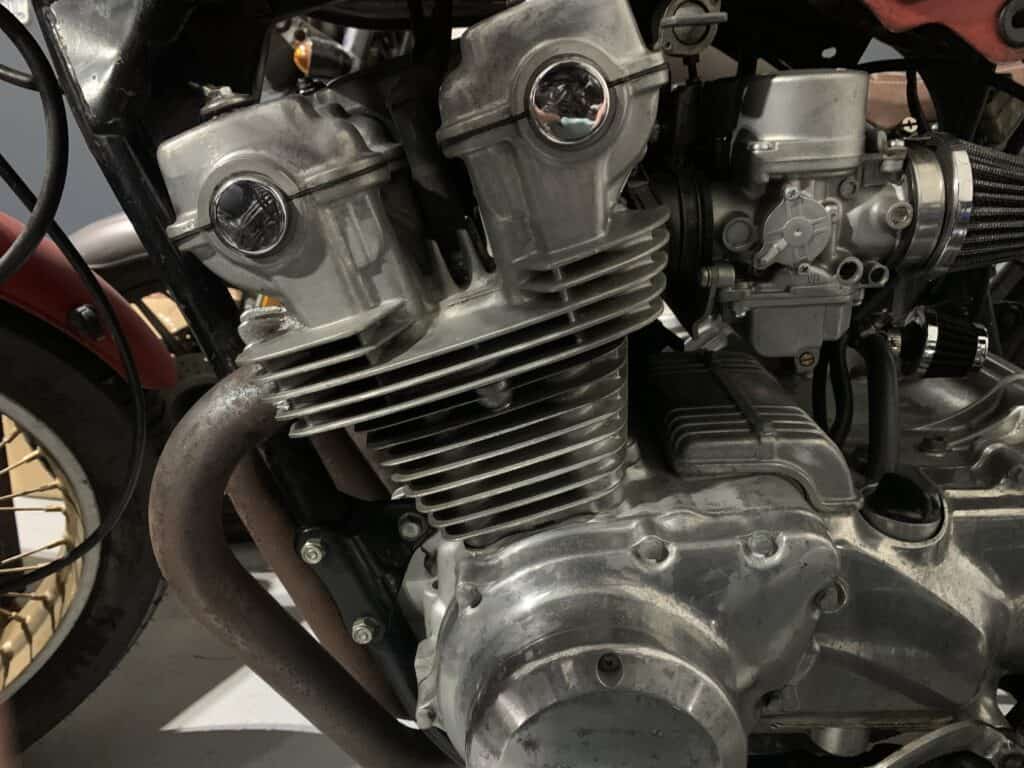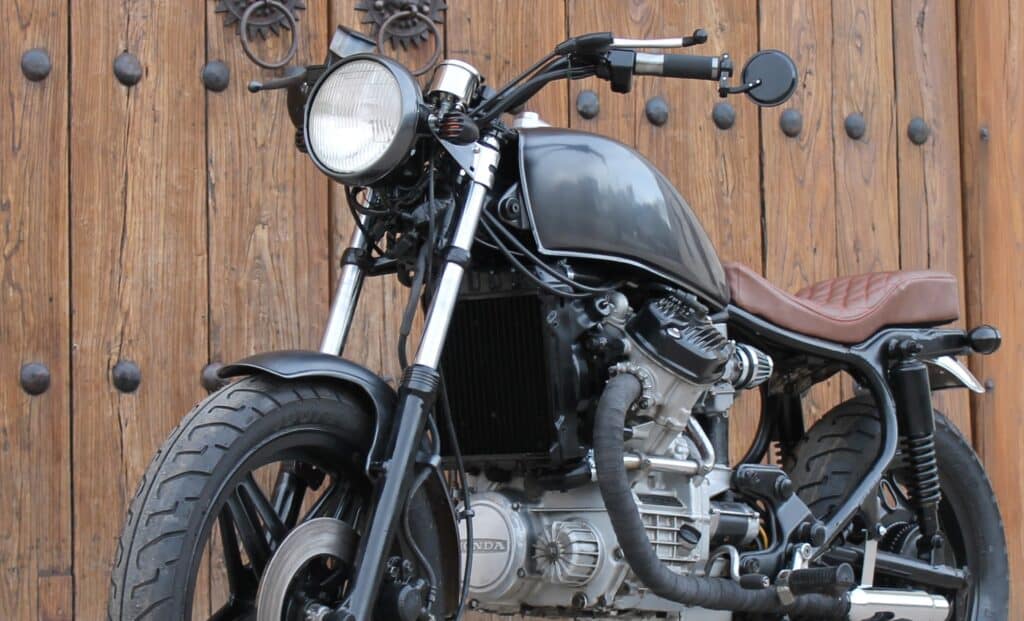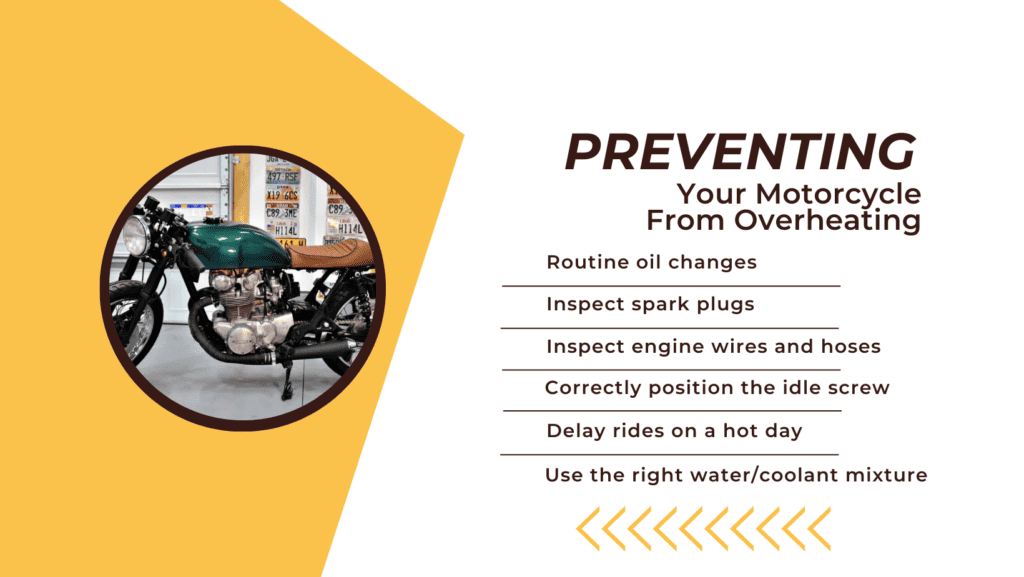
As motorcycle enthusiasts, we cherish the freedom and exhilaration that comes with hitting the open road. However, every rider knows the frustration of encountering an engine that is overheating, disrupting an otherwise perfect ride.
Whether you’re navigating city streets or exploring winding country roads, keeping your motorcycle’s temperature in check is essential for both performance and your personal safety.
How do you keep your motorcycle from overheating? To prevent a motorcycle engine from overheating, you will need to perform routine oil changes, regularly inspect spark plugs, hoses, and wires, correctly position the idle screw on the carburetor, delay rides on a hot day, and use the right water/coolant mixture.
Being an avid motorcyclist myself, I’ve unfortunately run into the issue of an overheating motorcycle engine. This article will explain what I’ve learned about how to prevent your engine from overheating from both my experience and my knowledge as a mechanical engineer. Additionally, I’ll explain what you can do if you encounter this problem yourself.
6 Essential Ways To Prevent Your Motorcycle From Overheating
Motorcycles are no exception when it comes to overheating despite their minimal structure. There are two different types of cooled motorcycle engines. First, there are air cooled motorcycles which probably comprise of about 90% of all motorcycles out on the roads right now. These engines have fins on the side of them and as you ride, the air rushes past those fins and cools the engine down.

The second type of engine is called a water cooled engine. This is a type of engine that has a radiator attached to it. Fluid passes through the tiny passages in the radiator, gets cooled, then circulates throughout the engine to cool it off. These require a water/coolant mixture for optimal temperature regulation.
When it comes to keeping your motorcycle from overheating, your number one prevention tool will be basic engine maintenance. Having restored dozens of motorcycles myself, I have seen first-hand what lack of maintenance can do to a motorcycle. The project motorcycles I get are usually bikes that have been sitting for months to years. The owners stopped riding because their motorcycle couldn’t work efficiently since they weren’t performing basic engine maintenance.
So, from a motorcycle restorer and mechanical engineer’s perspective, here is what you MUST do for motorcycle engine maintenance: change your oil every 4,000 miles or every 6 months, whichever comes first. Routinely check your spark plugs for wear or damage; a spark plug not working means your engine isn’t working efficiently. Lastly, ensure all hoses and wires leading to the engine are in good condition and replace as needed.
A motorcycle overheating can also stem from carburetor issues. A carburetor can determine how your motorcycle idles, so ensure the idle screw is positioned correctly. A high idle means a motorcycle is constantly revving at a high RPM. This can eventually overrun the engine and cause it to overheat. You can read my other article here about the impact high idling has on a motorcycle.
If you have a water cooled motorcycle engine, maintaining the right coolant and water mixture is vital. Occasionally inspect the radiator and make sure no rocks or other debris are encased on it and that there are no holes that can cause fluid leaks.
Lastly, be aware of the temperature outside while you’re out for a ride. Your motorcycle could be in optimal working condition and have absolutely nothing wrong with it, but if it’s a really hot day you still run the risk of overheating your engine simply because of the atmosphere.

Why A Motorcycle Overheats And How To Address It
There are two main reasons why a motorcycle engine overheats. The first main reason is due to the engine working way too hard and the rev is too high.
During a high rev, the RPM’s are increased so the friction that’s happening inside the engine also increases. As a basic law of physics, constant friction leads to heat which leads to a motorcycle engine overheating. To learn more about the impact revving has on your motorcycle, you can see my other explanatory article by clicking here.
If you suspect this is the reason your motorcycle engine is overheating, discontinue doing high revs and let the engine cool off. If your motorcycle is idling high by itself, you may need to readjust the idle screw on the carburetor so the motorcycle idles between 700-1,000 RPM’s. Anything above 1,500 RPM’s is excessive.
The second reason a motorcycle engine overheats is because of improper oil circulation. Oil acts as an engine coolant on a motorcycle because it lubes everything inside. Lubrication helps reduce the amount of friction happening between parts that are contacting each other, thus reducing the amount of heat it emits.
If you are overheating on a water cooled motorcycle engine, check your coolant-to-water ratio. You always need to maintain a mixture of 50% distilled water and 50% motorcycle coolant. An uneven mixture can cause a motorcycle to overheat.
Never use tap water in a motorcycle cooling system because it has a lot of additives in it from the city such as iron or calcium. These additives are okay for us humans to drink but is terrible for a motorcycle engine. Always used distilled water in a water cooled motorcycle engine.
Occasionally the coolant lines can get plugged up which will prevent the coolant mixture from circulating. If you feel this may be your problem, use an infrared thermometer and point it at the inlet of the radiator then at the outlet of the radiator and compare the temperatures. The temperatures should be dramatically different from each other. If they’re not, then coolant is not circulating properly and your likely culprit is plugged lines.
How To Tell If Your Motorcycle Is Overheating
A lot of motorcycles don’t come with temperature gauges, so it may be hard to know whether or not an overheating engine is your issue. There are a few obvious signs you can look for if you suspect this is what’s going on.
Your biggest sign will be the smell of burning fluids such as oil or coolant. Those are smells you shouldn’t be smelling on a regular basis. Another obvious sign would be smoke coming from the engine or excessive smoke coming from the exhaust.
Though most motorcycles don’t have a temperature gauge, there are other lights on the instrument cluster that can be an indication of an overheating problem. Some motorcycles will have a check engine light come on or some sort of warning light. Older motorcycles may have the oil light come on.
If you suspect your engine is overheating, immediately pull over to the safest spot possible and turn off your motorcycle. Let your motorcycle cool off for at least 15 minutes before attempting to start it again if you have to. It may help to pour some water on the engine to help it cool down.
If you go to start it again and it continues to overheat, turn it off again immediately and discontinue using the motorcycle. You will likely need a friend or towing company to pick you up so you can correctly address the cause of the issue either in your garage or with a mechanic. Calling a towing truck is a lot cheaper than having to get your engine rebuilt.
Conclusion
Despite the simple design of a motorcycle, they’re still susceptible to overheating. Fortunately, there are some easy steps you can take to prevent overheating such as routine oil changes, checking the condition of the spark plugs as well as the hoses and wires leading to the engine, checking the idle screw position on the carburetor, not riding on a hot day, and using the right water/coolant mixture for water cooled engines.
Having run into these issues many times myself, I can attest that these preventative measures will keep your motorcycle going healthy and strong! Have you guys ever had over heating issues on your motorcycle? What did you find was the root cause? Feel free to reach out with any questions or comments, I’m always happy to help!
Related Questions
Which is better, an air cooled motorcycle or a water cooled motorcycle? Both an air cooled and water cooled motorcycles have their perks so there is no complete answer about which is better in general. However, water cooled engines are less likely to overheat if proper maintenance is kept up.
